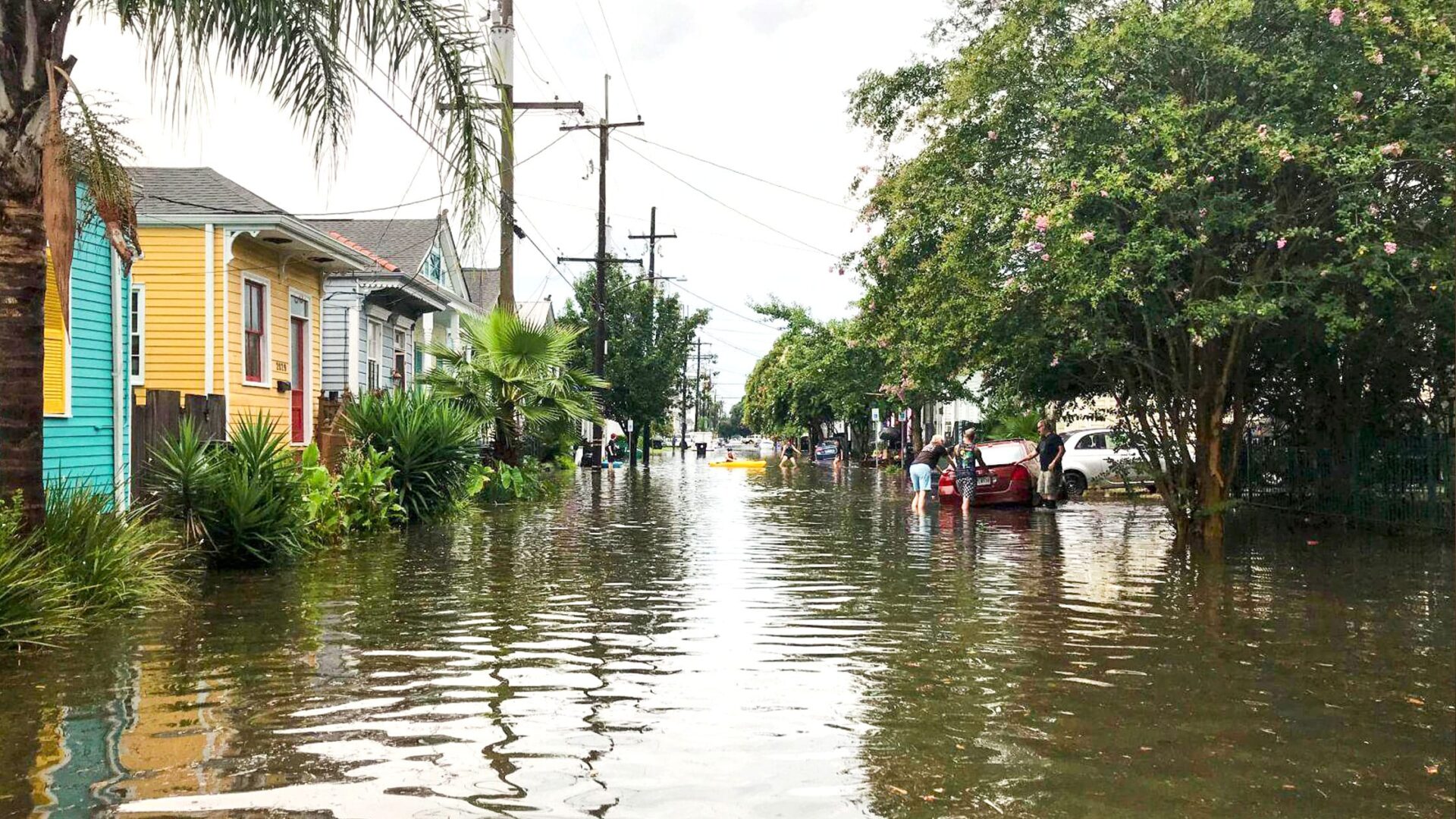Unfortunately, South Louisiana is no stranger to natural disasters. But New Orleans is a city with an amazing ability to recover, rebound and improve after storms and other challenges.
Here are a few tips to help you bounce back after a storm
- Survey your property for downed power lines: Also look at the lines that connect your property to the distribution network (poles). Even with the power grid mostly down, it is wise to stay clear of any downed lines and report them to Entergy at 1-800-ENTERGY (1-800-368-3749) as well as your nearest police or fire station.
- Stay clear of any fallen trees or debris: Do not attempt to remove large fallen trees, limbs or debris without assistance. Unstable debris can shift causing damage or injury.
- Document post storm conditions with photos and videos: These can be crucial to obtaining a complete and timely payout from your insurance company or FEMA. If you’re not using a smart device with automated cloud storage, be sure to manually back up your images.
- Do not enter a building with obvious signs of structural compromise: If you are returning to examine a property after evacuating or sheltering elsewhere, do not enter a building with collapsed walls, a sunken roof or tilting chimney. Even if the structure appears stable, be careful upon entering. Look for any signs of broken glass and points of water intrusion, especially in the ceiling and around windows.
- If your home has suffered water intrusion, do your best to ventilate the space and allow it to dry as quickly as possible: In many cases, historic materials like plaster and wood do not need to be replaced if they dry completely. Newer materials like Sheetrock walls (gypsum) may need to be replaced. However, it is not advisable to hastily begin “gutting” your property. Remember, there are electrical and plumbing conduits inside your walls.
- Not all mold is equally dangerous: Wear a mask to protect your lungs if you see dark spots indicating mold. Mold remediation is safer left to professionals and may be covered by your insurance.
- Report a gas leak immediately: If your property has natural gas service, be alert for a sulfurous smell that might indicate a gas leak. If the building sits on piers, like many historic homes in New Orleans, examine the underside of the home with a flashlight for fractured or disconnected pipes.
- Look for water leaks: If you detect a water leak, it may be necessary to shut off supply at the meter until repairs are made.
- Be cautious inspecting attic spaces: Look for shafts of light that may indicate a puncture in the roof. Do not attempt to walk across attic joists if there is evidence of significant water intrusion on the ceiling below or obvious damage to the roof above, such as a fallen limb.
- Do not attempt to climb onto a roof alone or without safety precautions: Do not climb onto roofs with sizable holes caused by wind or debris, as collapse could result. Only insured, experienced professionals should remove fallen trees or limbs from roofs.
- Tarps can help: If your roof has experienced only minor damage, such as small holes or missing shingles, then you may be able to prevent further water intrusion using a tarp. Tarps may be available from local relief efforts. They need to be secured flat against the roof using lumber nailed or screwed to the roof decking. The resulting punctures will also require repair. Tarping a roof is an interim protective measure best done by a contractor or experienced professional. Learn about Operation Blue Roof from the U.S. Army Corps of Engineers.
- Contact your insurer promptly: After documenting the conditions of your property, call your homeowners’ insurer. Be patient and ask any questions you have to ensure you understand both your coverage and the process moving forward. Provide photos or videos as instructed by your insurance company. In many cases, your insurer may cover off-site lodging expenses when your home is damaged, so be sure to ask.
- Determine whether or not to remain on site: Consider both the building’s condition and the estimated time before having electricity and other services restored. If you opt to shelter elsewhere, secure the building from additional rain as well as intruders. Lock doors and windows. Close operable shutters if you have them. If you plan to be off site long-term, consider boarding openings with plywood secured by screws. Remember, you’ll need to repair the resulting holes. Find a neighbor you trust who is remaining nearby and swap contact information to stay in touch.
- Document, document, document: Be sure to keep a thorough record and all receipts of the cost you incur. If possible, use a single debit or credit card for evacuation-related transactions, so you can cross reference the statement later. It’s also a good idea to take photos or videos of the property you are leaving behind.
- Communicate, communicate, communicate: If you evacuate, make sure friends and family members know where you are and how to reach you. Stay in touch with your neighbors, too. Media reports and information from Entergy may help you determine when power has been restored, but information from a neighbor on-the-ground is invaluable. With cell service and electricity unreliable, be proactive about checking in with friends and family but remain patient.
- Evacuation costs: Your homeowners or renters’ insurance policy could cover some of the costs of evacuation, including gas or bus fare, meals, and lodging. Call your insurer to determine the specifics of your policy. Be sure to verify whether a mandatory evacuation was declared for your parish (evacuation was recommended but not mandatory in Orleans and portions of Jefferson parish inside the levee system).
- Check with FEMA: Even if your policy does not cover evacuation costs, FEMA may help fill the gap. You will need to create an account at disasterassistance.gov to request funding. Be sure to have your social security number and banking information on hand when getting started. Only qualified expenses are eligible for reimbursement: lavish meals or lodging may not qualify, and you’ll need to provide your receipts after the fact or be liable to repay the government.
- If you are evacuating after an event: Secure your property before leaving, both to keep it watertight in the event of future rains and to prevent trespassing. If possible, leave a key with a trusted neighbor who can check in for you. Leave no perishables behind indoors.
- Pack smart, be smart: Take what you’ll need for at least a week. Don’t forget medication and vital documents like Social Security cards, ID cards, and health insurance cards. Rely on public agencies and established charities for information and guidance.
The stress of evacuation, like the stress of remaining in a post-disaster environment, can be extreme. Remember, you are not alone. Seek the help and the support you need.






